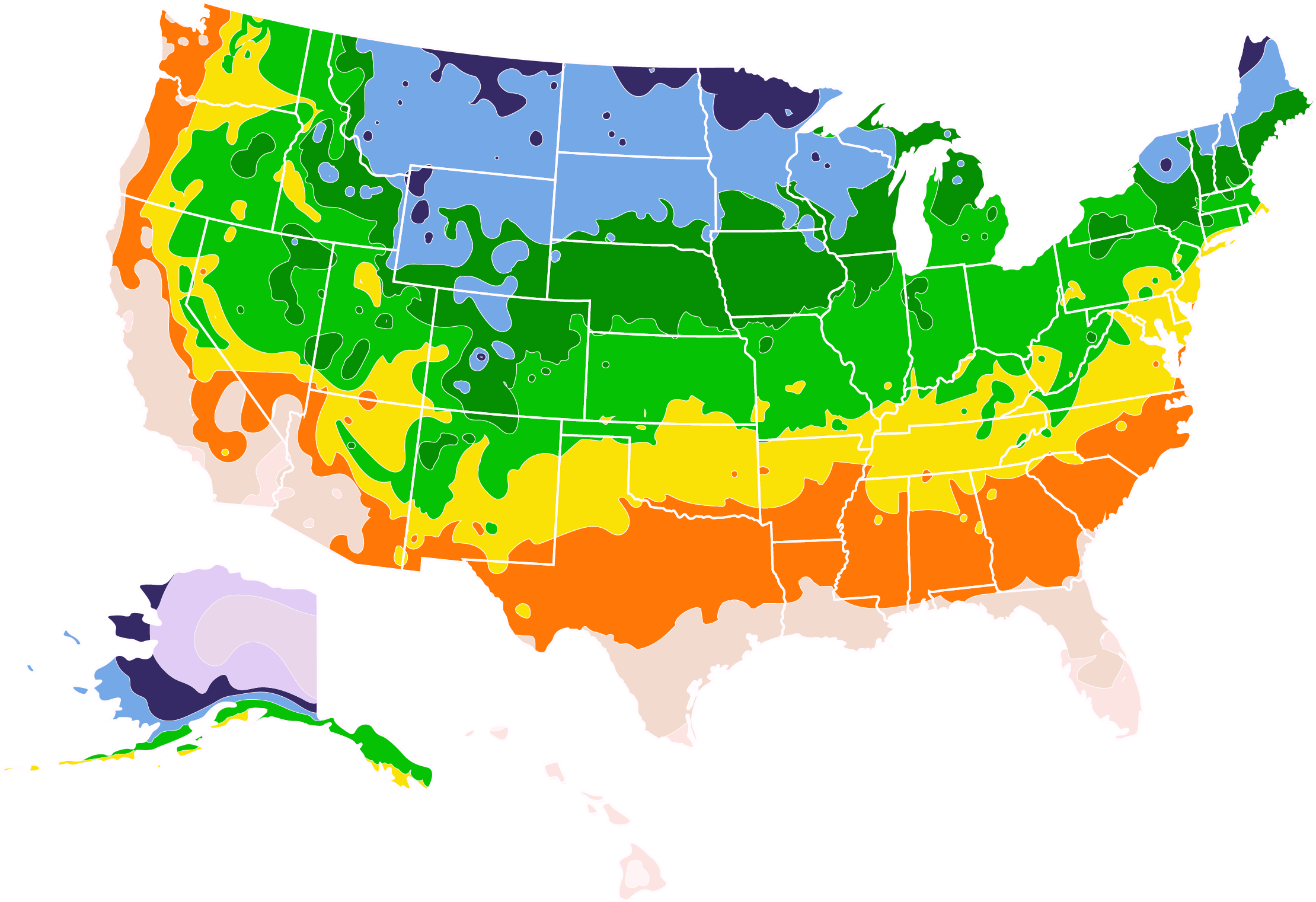- Home >
- Privacy Trees >
- American Pillar Arborvitae
American Pillar Arborvitae for Sale - Buying & Growing Guide
- Ships in 1-2 days
- 1-Year Warranty Eligible
- Pots or accessories are not included unless specified in the product options.
Shipping Details:
Once your order is shipped, you’ll receive an email with a tracking number and estimated delivery date. Most orders ship immediately, but some items are seasonal and may only ship in spring or fall. These products are noted on the website.
When you need to create privacy in a small space, the American Pillar arborvitae is the perfect plant to use. This cultivar, known officially as Thuja occidentalis 'American Pillar,’ lives up to its common name; it forms a tall but astoundingly narrow pillar of dense evergreen foliage. You can count on this foliage to give your garden vibrance year-round while blocking sightlines to give your favorite garden spaces a bit more privacy.
- The American Pillar arborvitae’s consistent evergreen foliage provides privacy and wind screening all year.
- Its narrow form provides height with just a few feet of spread.
- It grows quickly and can survive throughout nearly all of the United States.
Plant Care
Sunlight
Plant your arborvitae in an area that receives about six to eight hours of direct sun exposure per day.
Watering
Water once per week during establishment. When mature, water when the first inches of soil have dried out.
Fertilizing
Fertilize in early spring with a nitrogen-rich mix.
Planting and Care
Planting instructions
Grow your American Pillar arborvitae where the soil is relatively moist and the sun shines for at least six hours per day. When choosing a location, remember that while this plant is surprisingly narrow, it can attain a considerable height of 30 feet. You should ensure there is plenty of open overhead space above your planting area. Grow this plant as an individual specimen or create a consistent hedge by placing multiple American Pillar arborvitaes just about 3 feet apart from one another.
Watering and nutrients
Like most plants, the American Pillar arborvitae needs more water while it is young and trying to establish itself. After planting, provide water once per week through the first growing season. When the plant is older, add water when you notice the top inches of the soil have become dry to the touch. Fertilizing in early spring with a blend that has plenty of nitrogen can also help this plant’s growth. However, a mature American Pillar arborvitae can usually survive without fertilizer applications.
Pollination
The American Pillar arborvitae, like all other arborvitae plants, has male and female flowers on the same plant. These flowers are small and not ornamentally valuable. They release their pollen into the air, where it is carried to other plants via the wind. A pollinated arborvitae plant will then produce fruits in the form of small cones that are just a fraction of an inch long. However, gardeners who grow the American Pillar arborvitae can afford to pay little to no attention to pollination, as fruit production is not a viable goal for this plant.
Pruning
Many people who grow the American Pillar arborvitae choose to prune or shear their plants, especially when they grow as a part of a hedge. Typically, the American Pillar arborvitae responds well to pruning, but there is one key insight you should understand. As is the case with many evergreens, the American Pillar arborvitae will not sprout new growth from old wood. If you cut back yours too much, you risk creating areas that are permanently bare of foliage. Keep this in mind, and perform your pruning in early spring if you choose to do so.
Pests, diseases, and animals
American arborvitae plants can have problems with several pests. Bagworms, leaf miners, and spider mites are the most common insects to cause issues. Diseases can arise as well; in American Pillar arborvitae, root rot and heart rot are the most notorious. Tip blight is also one of the most common fungal infections for this plant. On the positive side, the American Pillar arborvitae cultivar is often far better at resisting deer browsing than related arborvitae varieties.
Achieving maximum results
You may need to give your American Pillar arborvitae some protection from wind and snow accumulations based on where you live. In general, American arborvitae plants can be prone to breakage when they are under too much weight. The exceptionally narrow form of the American Pillar cultivar makes it all the more likely to break under these forces. Additionally, although this plant grows best in slightly acidic soils, it can also survive considerable alkalinity, making it a suitable option for limestone soils where many other plant species may struggle to survive.
FAQs
How do you make American Pillar arborvitae grow faster?
American Pillar arborvitaes have a fast growth rate that can reach as much as 2 feet of new growth per year. Despite that quickness, some people feel the need to encourage their plants to grow even faster. If that is your goal, the best way to achieve it is to plant them properly, keep their soil at the ideal moisture, and provide a nitrogen-rich fertilizer once per year. At times, maintaining a lower soil pH can also help speed up arborvitae growth.
How long do American Pillar arborvitae plants live?
An arborvitae can live to quite an old age if planted where growth conditions are ideal. In fact, some grow for more than a century, and the oldest arborvitae may be more than a thousand years old. However, since the specific variety known as the American Pillar arborvitae was cultivated relatively recently, it's difficult to predict how long these trees will last on average.
What are the signs that an American Pillar arborvitae is dying?
When your American Pillar arborvitae is on the decline, there will be several visual signs that you can notice. The most obvious indicator that an American Pillar arborvitae is dying is foliage discoloration. If you see a large portion of your plant's leaves fail to hold a consistent green color, it's likely in distress. Dying American Pillar arborvitae plants may also have brittle bark, broken limbs, and signs of infestations or infections.
Compare Similar Products
Customer Reviews
This company is wonderful
Bought 50 of them. They where extremely will packaged. Also they where very helpfull to the questions I had due Covid 19 pandemic. Thanks again Pam for all the help I got with going online only orders. Mary
I love the possibility to be able to receive plants and trees in the mail. I was worried about packaging but reminded myself that if you couldn't ship them safely that you wouldn't. the sizing is what was a little disappointing. I read the reviews and knew there was a possibility that i may get one large and one small. One of my trees was about 18" and looked very healthy and a good center trunk established, the other one was about 7" and looks like it was started from a clipping and didn't have a good trunk or growth started yet. I got them in and watered them and set them in some shade and then planted three days later, keeping them watered. I hope that little guy hangs in there and makes me proud. I will end up ordering more and I have recommended your company and these particular trees in a replacement for privacy fencing. Thank you for you inquiry and I'll let someone know if this little guy doesn't make it. I'm unsure about your policy on that.
You can't add more Product Name - Product size to the cart.
OK






